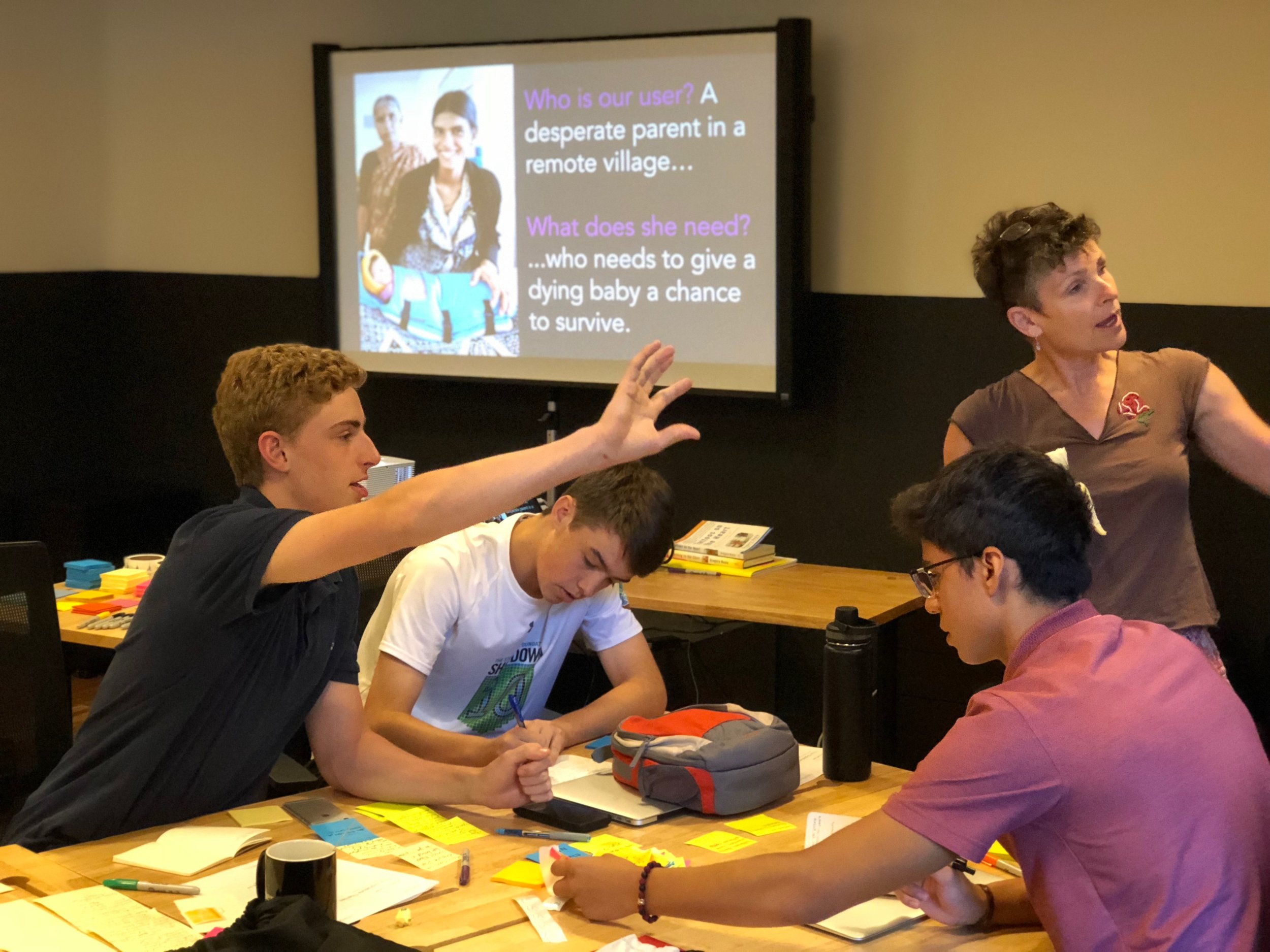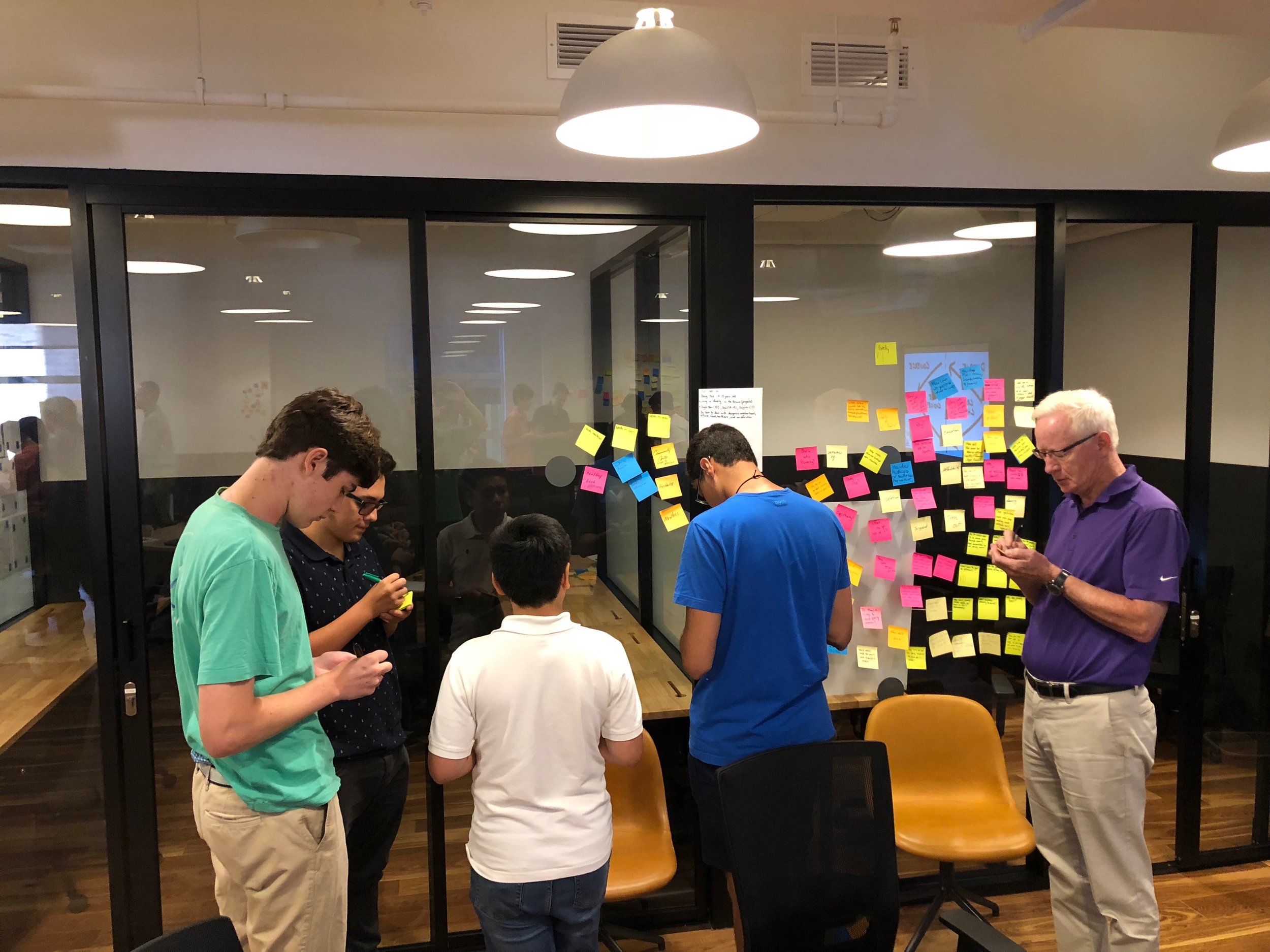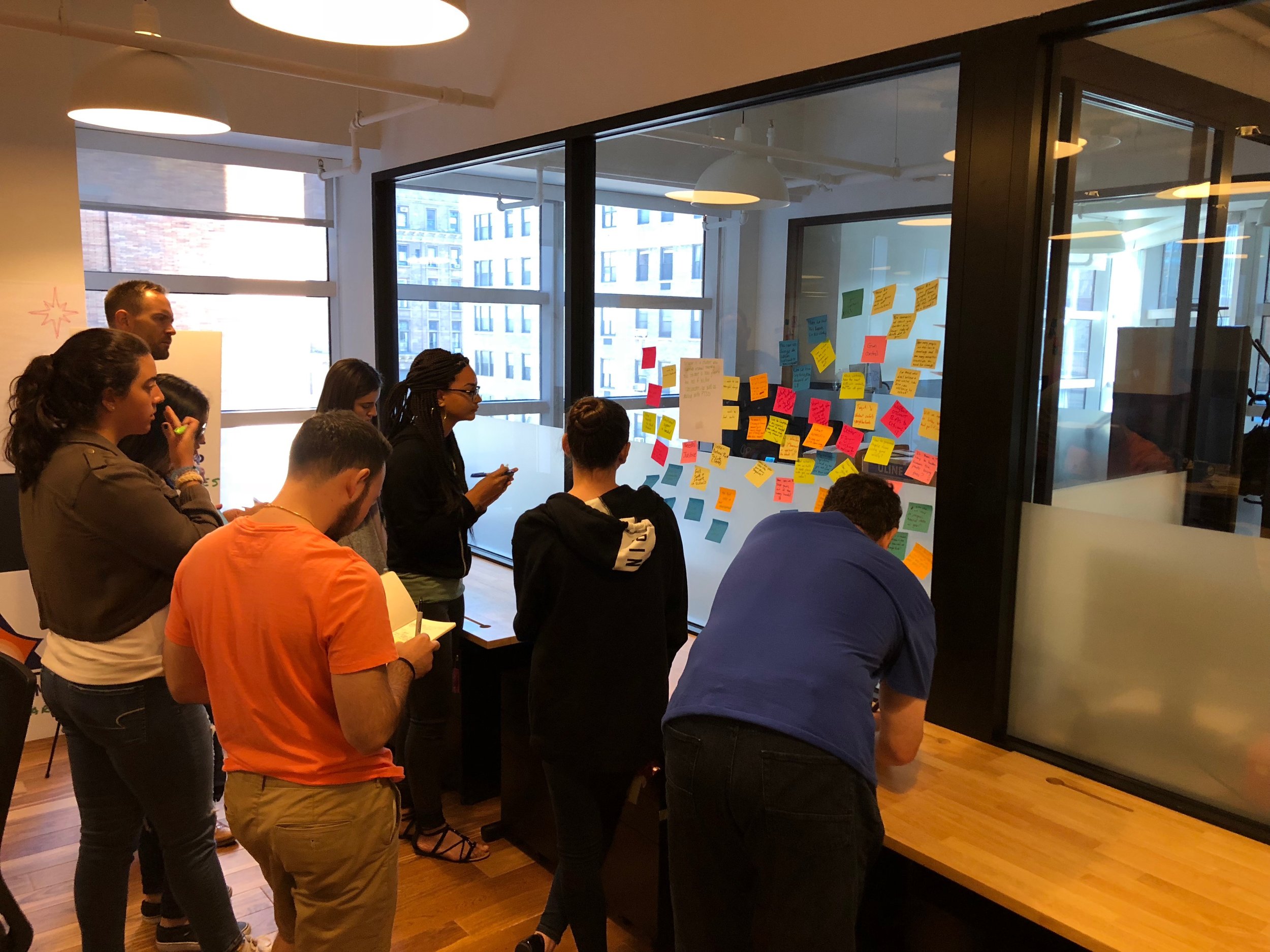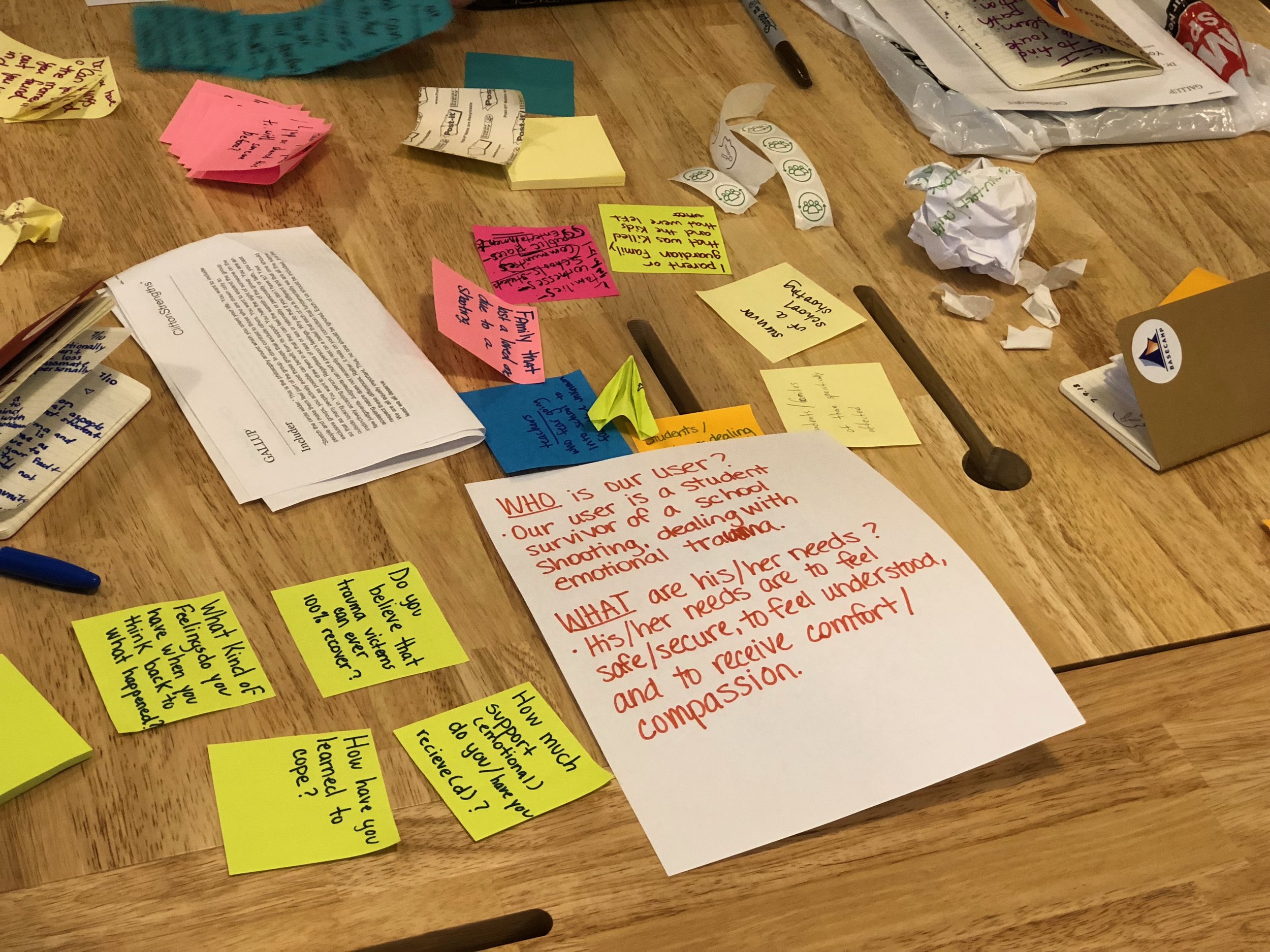Expeditionaries Day 2 of 8: Social Entrepreneurship as "Radical Kinship"
Fr. Greg Boyle SJ (right) practices "radical kinship" with one of the "homies" from Homeboy Industries, the world's largest gang prevention, intervention, and re-entry program.
On Day 2 of Expeditionaries, students and teachers from Bishop Kearney, Fordham Prep, and Regis High School heard about Matteo and Julian, two 19-year old gang members who had been incarcerated for most of their adolescence. Their story comes from Tattoos on the Heart, a memoir by Jesuit priest Greg Boyle SJ, founder and CEO of Homeboy Industries.
Boyle takes Matteo and Julian to an event in Montana where the two young men tell their story and are embraced warmly and enthusiastically by the local community. As they prepare to fly home, they discover their photo on the front page of the newspaper with a lengthy "above-the-fold" write-up.
Then Boyle says,
Matteo and Julian are seated together, and I'm across the aisle. Midtrek, I look over and see Julian, in the window seat, knocked out, asleep with his head leaning on Matteo's shoulder. Matteo is crying.
"What's wrong, mijo?"
He has the Montana newspaper resting on his lap. "I just read this article again." He can't speak for a second and silently puts his hand over his heart. "I don't know... it really gets to me. Makes me feel like I'm somebody." He cries all the more.
I lean across and whisper, "Well, that's because you are somebody."
It is noteworthy what doesn't happen in this transformational moment for Matteo. Some well-meaning social entrepreneur doesn't diagnose Matteo's brokenness and then design a solution to “fix" him. Instead, Matteo is "returned to himself" (a favorite phrase of Boyle's) by strangers offering empathy, expressing compassion, and embracing him just as he is.
There is a lesson here for social entrepreneurs who rely on design thinking allegedly grounded in empathy. In Boyle's experience,
Compassion is not a relationship between the healer and the wounded. It's a covenant between equals. [...] Compassion is always, at its most authentic, about a shift from the cramped world of self-preoccupation into a move expansive place of fellowship, of true kinship.
At Expeditionaries, we define social entrepreneurship as “creative and collaborative problem solving for the common good”—but first social entrepreneurship must involve "radical kinship.”
For starters, this requires that our Expeditionaries relentlessly ask, "Who is our user? What does she need to do?" Those questions form a compass for the students’ journey into an unknown problem. When budding social entrepreneurs get enamored of their clever solutions, that compass points them back to their True North: kinship with someone on the margins.
Radical kinship also means—more fundamentally means—being deeply curious about the lives of the marginalized.
Today, for example, students imagined that they had limitless time for an empathy interview with their user. Our Expeditionaries then wrote down every question they might want to ask that person.
Judging from their questions, these Expeditionaries are well on their way to tilling the soil of their hearts for kinship. And if social entrepreneurs can't create change in their own hearts first, where else will they create it?
***
Stay tuned for Expeditionaries Day 3 of 8: "What problem are we really trying to solve?"
***
Thank you for reading this post from Basecamp's blog, Ed:Future. Do you know someone who would find the Ed:Future blog worthwhile reading? Please let them know that they can subscribe here.





